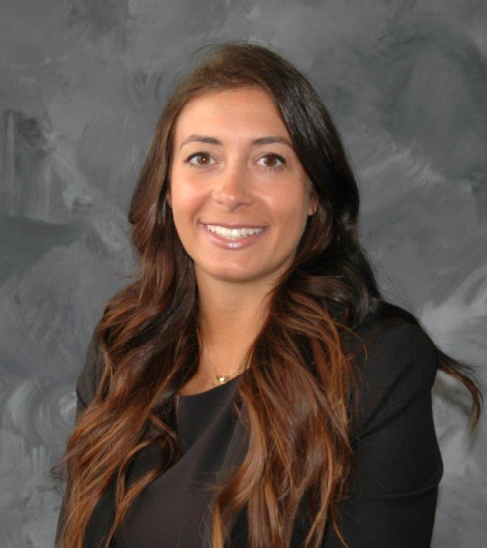
Alyssa Hirst is an internal sales manager for Hartford Funds. She actively coaches and mentors Hartford Funds’ advisor consultants to be resources for financial advisors regarding the financial markets, investment products, longevity management content, and other information related to their clients’ needs on the west coast. Alyssa also recruits, hires, trains, and develops talented individuals for the firm.
Here is what Alyssa had to say when we asked her about the art of sales and asking great questions:
GenHERation®: What qualities make someone an ideal candidate to work in sales?
Alyssa Hirst: There isn’t a set list of qualities because everyone is different and has different strengths. A lot of personalities can be successful in sales, but there are a few traits that will serve you well in the industry. First and foremost, being able to communicate clearly and effectively. Whether you’re working with a client, business partner, or team member, you must be able to clearly communicate situations. Second, being able to ask the right questions, pause, and listen. If you are doing the majority of the talking in a sales role, you are not going to uncover the answers you’re seeking to find. Third, being persistent and determined. There is this statistic that it takes at least six follow-through touchpoints to close a sale. You really need to be politely persistent. Finally, having attention to detail is critical. Keeping track of who you need to follow through with and what you need to follow through with allows you to effectively do your job.
GenHERation®: How can you make a great impression when meeting someone for the first time?
Hirst: First, the most important thing is to be yourself. Share something personal. Where you are from? Where did you go to school? This will allow you the opportunity to form a more personal connection. Second, make sure that you are showing interest by actively listening and asking questions. Over the years, especially when I meet someone for the first time, I use their name two to three times in the conversation. It shows respect, but then helps you to remember their name for future encounters. Supplement this with good posture and eye contact. A first encounter can be a little bit awkward, so a way you can combat this is through mirroring. Play off of what the other person said. For example, if someone says they work in sales, ask them something like “what was it that attracted you to sales?”
GenHERation®: What are three steps you should take to ask effective questions?
Hirst: We work on this all the time with our internal sales consultants as there is always an opportunity for improvement. First, we want to make sure that we are asking open-ended questions as opposed to closed-ended questions. If you are asking a question that elicits a yes or no response, it’s not the right question. A lot of times, people will take the easy way out and give you a no when you ask closed-ended questions, so they don’t have to continue the conversation. Another thing that we focus on is “what with numbers”. Instead of saying, “What are you looking to accomplish this year,” we ask, “What are the two or three things you are looking to accomplish this year?” This allows the other person to really think about how they’re going to answer as well as answer more honestly. The second part is really being able to ask a question that you want to or need to know the answer to. If you are asking a question that you really want to or need to know the answer to, naturally, you will be actively listening. The third part is trying to ask a question in a way that the person receiving the question may not have been asked it before. Instead of saying, “Tell me about your business,” ask something more along the lines of, “What are the one or two things you feel you’re doing differently compared to other advisors that continues to make you successful?” This forces the other person to be more thoughtful, which leads to a better conversation.
GenHERation®: How can you achieve win-win situations in negotiations?
Hirst: We strive to do this every day, but it’s far from easy. What’s as close to a win-win for us in sales is getting to a mutually beneficial decision. It goes back to making sure that you are actively listening and asking the right questions. You need to really hear what the person is saying, so you can get to a mutual understanding. Another skill that we work on with our sales folks is trying to repeat back what the other person is saying. We ask, “If I understood you correctly, you are looking for x, y, and z?” That gives them the opportunity to say, “No, I actually meant this.” To get to the win-win, we must ask for the business, and/or for clarity. After we have several conversations, we ask potential clients where they stand with us. Sometimes receiving a no is just as important as getting a yes.
GenHERation®: What elements are included in the most successful partnerships?
Hirst: It is being honest and transparent, which leads to trust. It’s like with any relationship. If you can’t trust the other person, the relationship will fail. After that, it is ongoing, constant communication, and it must come from both sides. In our case, as asset managers or financial salespeople, we have an obligation to keep our clients up to date with changes. Likewise, if the advisor has questions for us or a fund has underperformed or changed, they need to know they can reach out to us for any and all insight. The last component, which is a life skill, is if you talk the talk, walk the walk. Bring your words to life and do what you said you were going to do.
GenHERation®: What is the best piece of advice you have ever been given?
Hirst: Most importantly, be yourself in any situation. Over the years, I’ve found myself unconsciously adjusting how I present myself based on my audience. Be genuine, work hard, listen. Always want to strive for more. Be more than the qualities on your job description. Try to put yourself in situations where you are being pushed and challenged. You also must know and honor your priorities. Always feel and exude confidence. Keep track of your successes. Let people know what you have done and all that you can do, given the opportunity.
Alyssa Hirst is an internal sales manager for Hartford Funds. She actively coaches and mentors Hartford Funds’ advisor consultants to be resources for financial advisors regarding the financial markets, investment products, longevity management content, and other information related to their clients’ needs on the west coast. Alyssa also recruits, hires, trains, and develops talented individuals for the firm.
Alyssa joined the organization as a senior internal advisor consultant in 2016. Prior to joining the company, she worked for RS Investments and SEI Investments Company. Alyssa is a registered representative of Hartford Funds Distributors and is FINRA Series 7, 63, and 24 registered. She holds the Certified Investment Management Analyst (CIMA®) designation.
Originally from Ambler, Pennsylvania, Alyssa attended St. Joseph’s University where she received a bachelor’s degree in finance. She currently lives in West Conshohocken, Pennsylvania.



Comments (0)